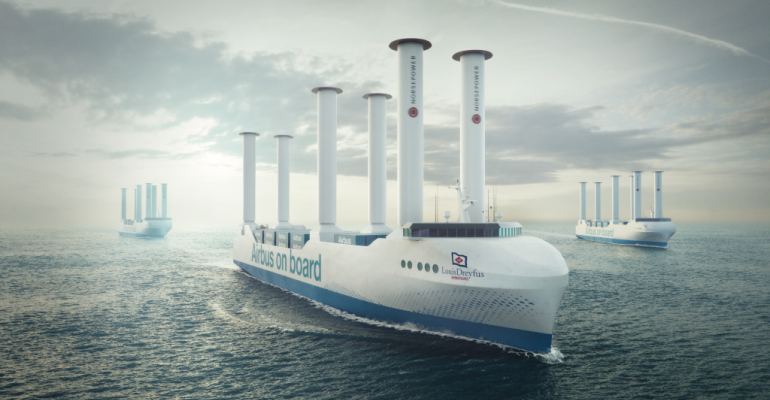The vessels were ordered in January by Louis Dreyfus Armateurs (LDA) and will be built by China’s Wuchang Shipbuilding on delivery, the ships will operate under charter for transporting airplane components for Airbus.
Six 35-metre-tall rotors will be installed on each of the three vessels, which will have two dual-fuel engines capable of running on green methanol and marine diesel.
“This fleet-wide deal is a game changer for the whole auxiliary wind propulsion industry,” said Tuomas Riski, CEO of Norsepower. “Firstly, it is the biggest deal ever made in the mechanical sails market, and in a world first, it includes our brand new Norsepower Sentient Control tool.”
Norsepower said that its new system will optimise efficiency by managing the complex aerodynamic interactions between the sails and the hydrodynamic behaviour of the vessel. The system will permit each rotor to be controlled individually while also providing real-time force measurement, control, and fuel saving reporting.
The rotor sails use the ship's power to rotate the tall cylinders, which harnesses the wind to produce the propulsive force which in turn reduces fuel consumption, emissions, and the cost of operation.
The vessels will enter service in 2026 and gradually replace the company’s existing fleet. When green methanol becomes available, they expect further emissions reductions through the adoption of the alternative fuel. The Airbus fleet, by 2030, will generate approximately 50% fewer CO2 emissions compared to 2023, the company said.
Copyright © 2024. All rights reserved. Seatrade, a trading name of Informa Markets (UK) Limited.
Add Seatrade Maritime News to your Google News feed.  |

